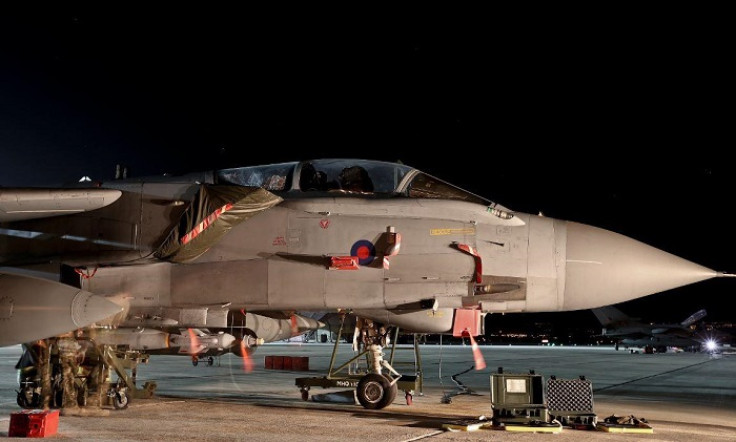Fight against Isis: UK to extend air strikes against Islamic State group to March 2017

Secretary Michael Fallon said the UK will extend air strikes undertaken by RAF Tornados against the Islamic State group by an additional year to March 2017.
Speaking while on a visit to Iraq, the minister said that British jets have helped Iraqi forces on the group to push Isis militants out of key towns.
"We want to ensure we maintain this crucial operational tempo," he said.
Fallon however ruled out Western ground troops joining in the battle against Isis, saying that Iraq had not requested this.
The BBC said that the squadron of Tornado GR4 fighter bombers – Number 12 Squadron- was due to be disbanded in March and replaced with a squadron of Typhoon air defence fighters.
However, following the start of air strikes against Isis last September, UK Prime Minister David Cameron said the Tornadoes would carry on its current role until March 2016.
Fallon said this second extension for the eight bombers based in Cyprus would ensure the RAF retained "the essential precision firepower, intelligence and surveillance" capabilities needed for operations against Isis.
The minister who met with Iraqi officials while in Bagdad said Iraq needed British help with air support, training and equipment. This did not include ground troops.
BBC however pointed out that the "painful truth for the coalition" is that for more than a year now, Isis has been able to hold on to most of the huge areas it has occupied in Iraq and Syria, something that al-Qaeda never achieved.
Isis is earning oil revenues of $40m a month and replenishing its ranks faster than they are being killed off. Fallon has admitted that this will be a long fight.
The eight bombers are equipped with precision-guided Paveway bombs and Brimstone missiles, BBC said. They can also be fitted with Raptor reconnaissance pods to carry out surveillance and intelligence gathering missions.
Together with the RAF's unmanned Reaper drones, which also operate in the region, they have flown more than 1,100 combat missions over Iraq and conducted more than 250 air strikes.
This is still under 5% of the coalition's total air strikes.
© Copyright IBTimes 2024. All rights reserved.






